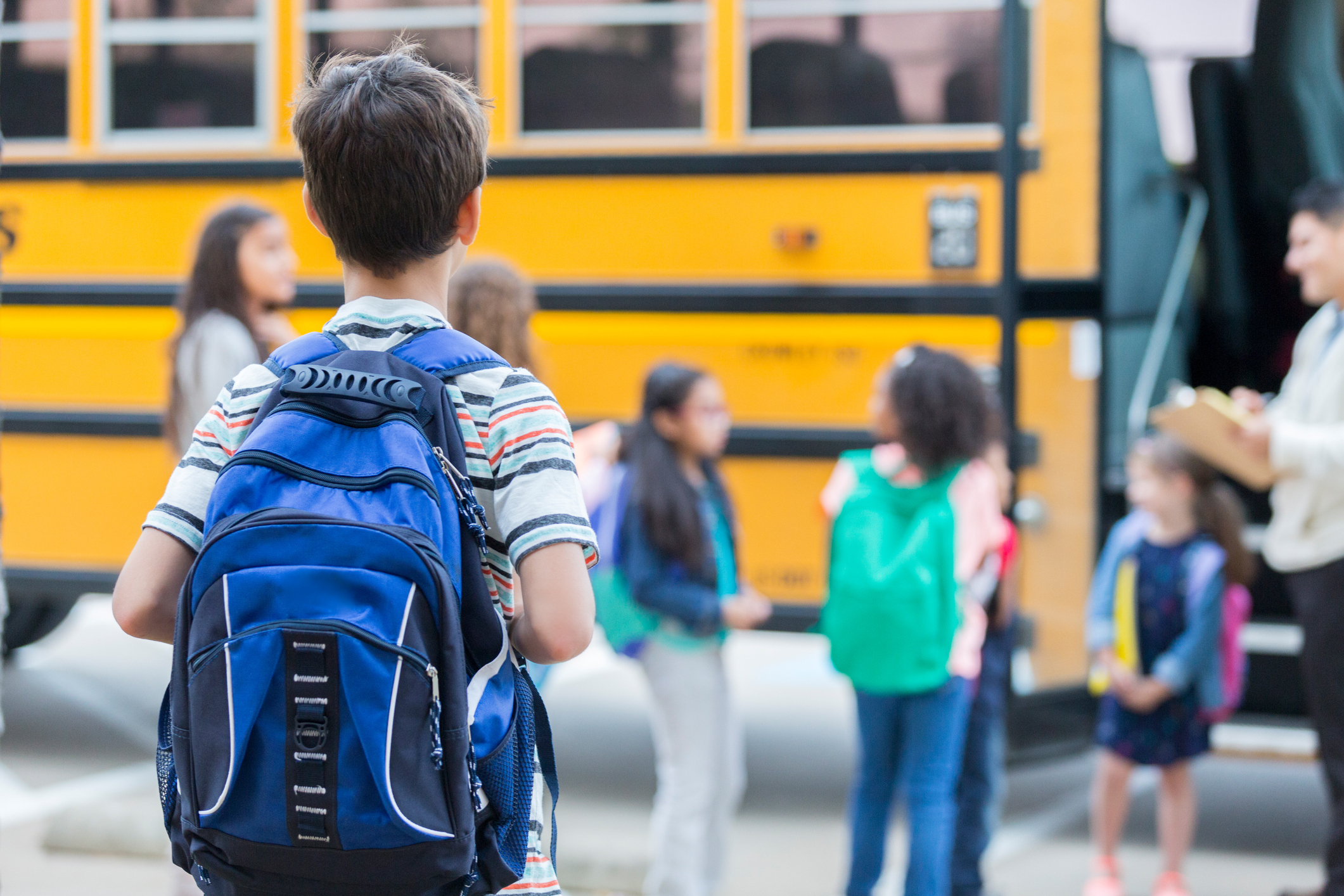LISTEN TO THIS ARTICLE:
Students all over the country are getting ready to go back to school, and while this is an exciting time for many, some students are going back into the classroom filled with anxiety. “For some of these kids, [there is] a good bit of anxiety around getting back into the classroom on a regular basis,” says Dr. Richard Martini, a child and adolescent psychiatrist at the University of Utah4.
Not all children have the vocabulary to describe their anxiety. But parents can look to their child’s behavior for signs.
“Kids who are experiencing anxiety may:
- Appear more clingy than normal
- Be restless and fidgety
- Complain of stomachaches
- Display changes in eating and sleeping habits
- Express negative thoughts or worries
- Get upset or angry more quickly
- Have bouts of unexplained crying
- Struggle to concentrate”5
“Anxiety disorders affect one in eight children. Research shows that untreated children with anxiety disorders are at higher risk to perform poorly in school, miss out on important social experiences, and engage in substance abuse. Anxiety disorders often co-occur with depression as well as eating disorders, attention-deficit/hyperactivity disorder (ADHD), and others”1. It is crucial to know the signs of anxiety and depression and keep a close eye on and open communication with your child.
There are many reasons why a student may be anxious and/or depressed. While this list is not exhaustive, here are some common stressors and how to combat them for students returning to school.

COVID
Sarah Lipson, an assistant professor of public health at Boston University, conducted a survey regarding students and mental health. “According to her department’s survey, the number of college students experiencing mental health issues first spiked in the 2015-2016 school year and has been going up since”4. This has only been exacerbated by COVID. Students of all ages report feeling sad, helpless, and anxious about returning to the classroom. While the number of COVID cases has dropped and life has returned to “normal,” these feelings should be taken seriously and not dismissed.
Getting back into a school day routine
With the summer ending, students need to get back into a routine and this may be challenging for some. Parents can help by asking students to design their own schedules and work with their student to create a schedule that works for them. Using a planner or a calendar to chart tasks and events and even rewards can help an anxious student feel more in control of their time and less overwhelmed overall. Ask students to prioritize tasks and schedule free time so they can develop time management skills that will help them throughout their lives.
Having an organizational system
Organization can help reduce anxiety, especially for busy students. Along with charting out their routine, develop an organizational system. Color coding folders for each class, creating a homework station or having a dedicated study space, and maintaining a routine for schoolwork, chores, and free time can all help relieve the anxiety of returning to school.
Getting a good night’s sleep
“There’s more to good sleep than just the hours spent in bed, says Dr. Marishka Brown, a sleep expert at NIH. ‘Healthy sleep encompasses three major things,’ she explains. ‘One is how much sleep you get. Another is sleep quality—that you get uninterrupted and refreshing sleep. The last is a consistent sleep schedule’”6. To ensure that students are getting enough sleep, discuss bedtimes and plan them into their daily routines. Limit caffeine intake throughout the day, but especially at night, and limit screen time in the evenings so students can “wind down.”
Bullying
Returning to school also may mean a return to conflicts with classmates or bullying. “There is nothing easy about bullying. In fact, it can be a traumatic experience for those who are targeted. The pain and distress victims experience impact almost every aspect of their lives leaving them feeling lonely, isolated, vulnerable, and anxious. What’s more, these consequences of bullying linger long after the bully has moved on to another target”7.
Parents, educators, and even students themselves can be instrumental in both preventing and stopping bullying. For parents: Observe the signs that their child may be being bullied. “Signs include: ripped clothing, hesitation about going to school, decreased appetite, nightmares, crying, or general depression and anxiety”2. Don’t dismiss the signs. Talk to the child to find out what is really happening in the child’s life. Make sure the child knows that you are there to help them through the situation.
As well, teach the child how to handle a bully. Practice scenarios where the child learns to ignore the bully and develop assertive strategies to cope with a bully. Teach the child about cyberbullying and how to respond to texts or emails received from a bully. “’Friend’ your child on Facebook and other social media platforms and set up proper filters on your child’s computer”2. If a child has a cellphone, request that the phone be stored in a common area. This can reduce the amount of time the child is on their phone and allow parents greater access to monitor when necessary.
“Often kids don’t report cyberbullying because they fear their parents will take away their phone or computer” so let your child know that you will not take their phone or computer away as a consequence for a bully’s behavior2. It is important for the child to know that they are not going to be punished, only supported through the situation.
Preparing for changes in friend groups
Students may also be anxious about changes in their friend groups. Starting a new school year, students may have friends that have moved to another school, or they may be starting a new school where they have to make new friends. This can trigger anxiety and depression. Encourage your student to keep connections with friends that have moved away and encourage them to make new friends by engaging in extra-curricular activities. Acknowledge that making friends is sometimes scary but reassure them that you are there to support them as they make this transition.
Academic challenges
With the return to school, students may be facing new academic challenges and new teachers. Going back to school can also trigger anxiety as a student may not know what the expectations of the new challenges are. Talk to your student and help them parse through the new expectations. Review homework with them and give them the tools to talk to their teachers and advocate for themselves by asking for help when needed. If a student needs more assistance in academics, find out what tutoring services the school has and encourage your student to ask for help.
The biggest components to helping an anxious student are open communication and support. Awareness of these issues and talking to your child about how they are feeling are key. Parents should reach out for support as well and consult a mental health professional if needed.
- National Alliance on Mental Illness (NAMI); 800-950-NAMI (800-950-6264)
- Anxiety and Depression Association of America (ADAA); 240-485-1001
- National Institute of Mental Health (NIMH); 866-615-6464
- Centers for Disease Control and Prevention, Division of Mental Health (CDC); 800-CDC-INFO (800-232-4636)
- American Psychological Association; 800-374-2721
- American Psychiatric Association; 800-357-7924


 Learn
Learn Get News
Get News Find Help
Find Help
 Share
Share
 Share
Share
 Share
Share
 Share
Share



